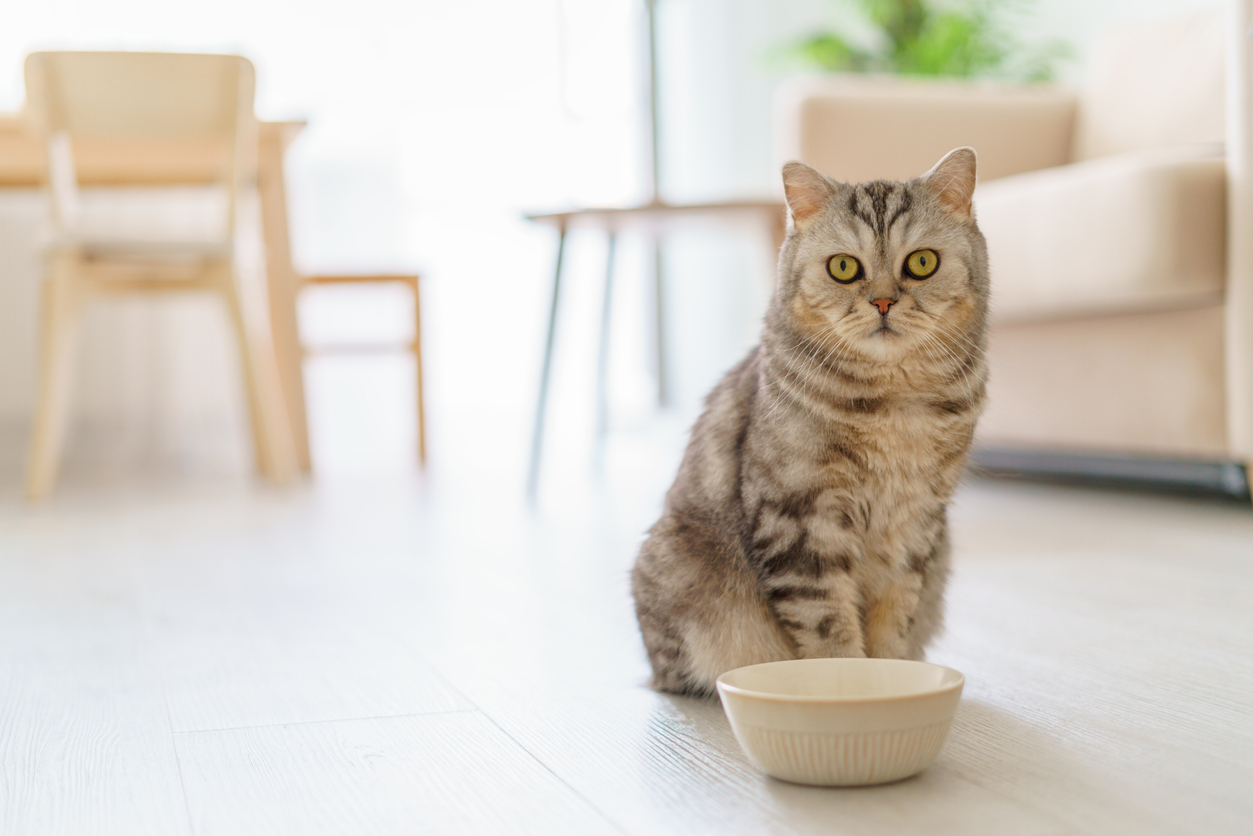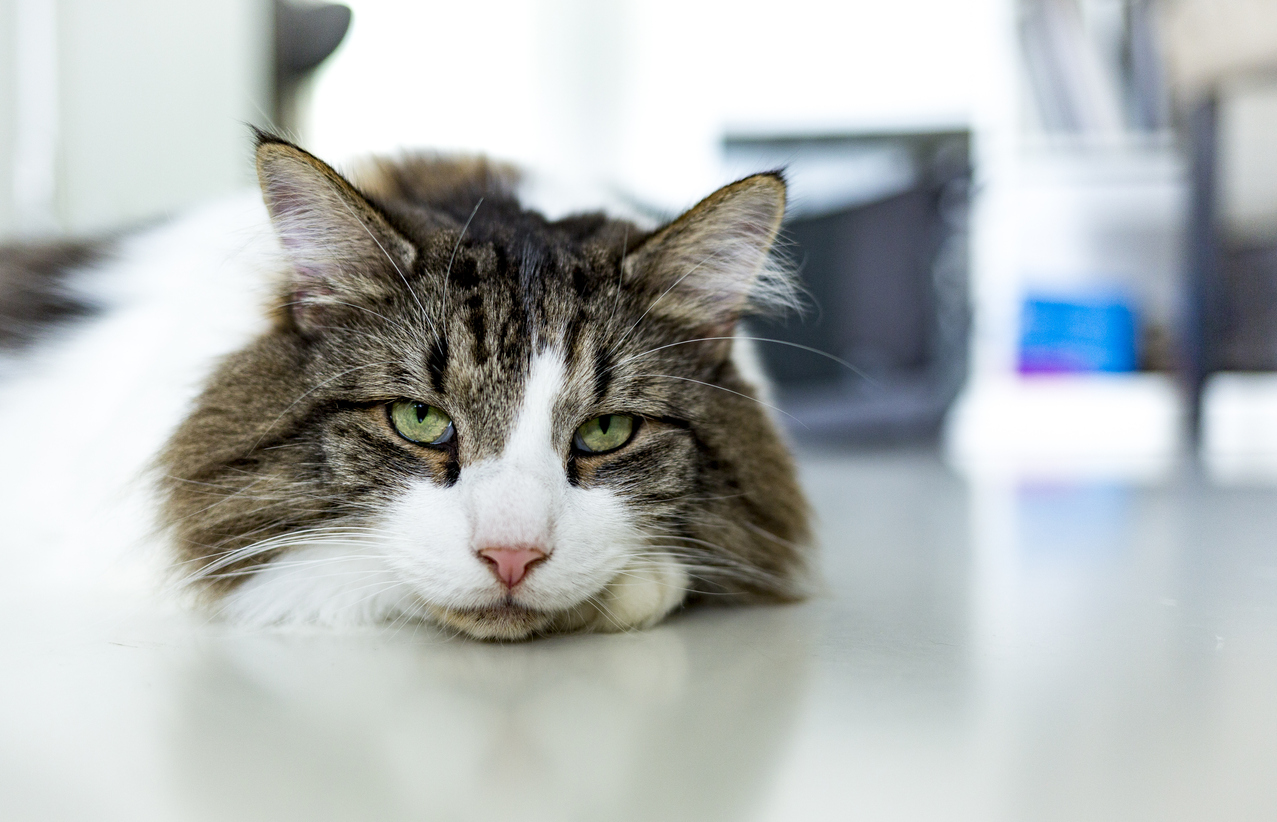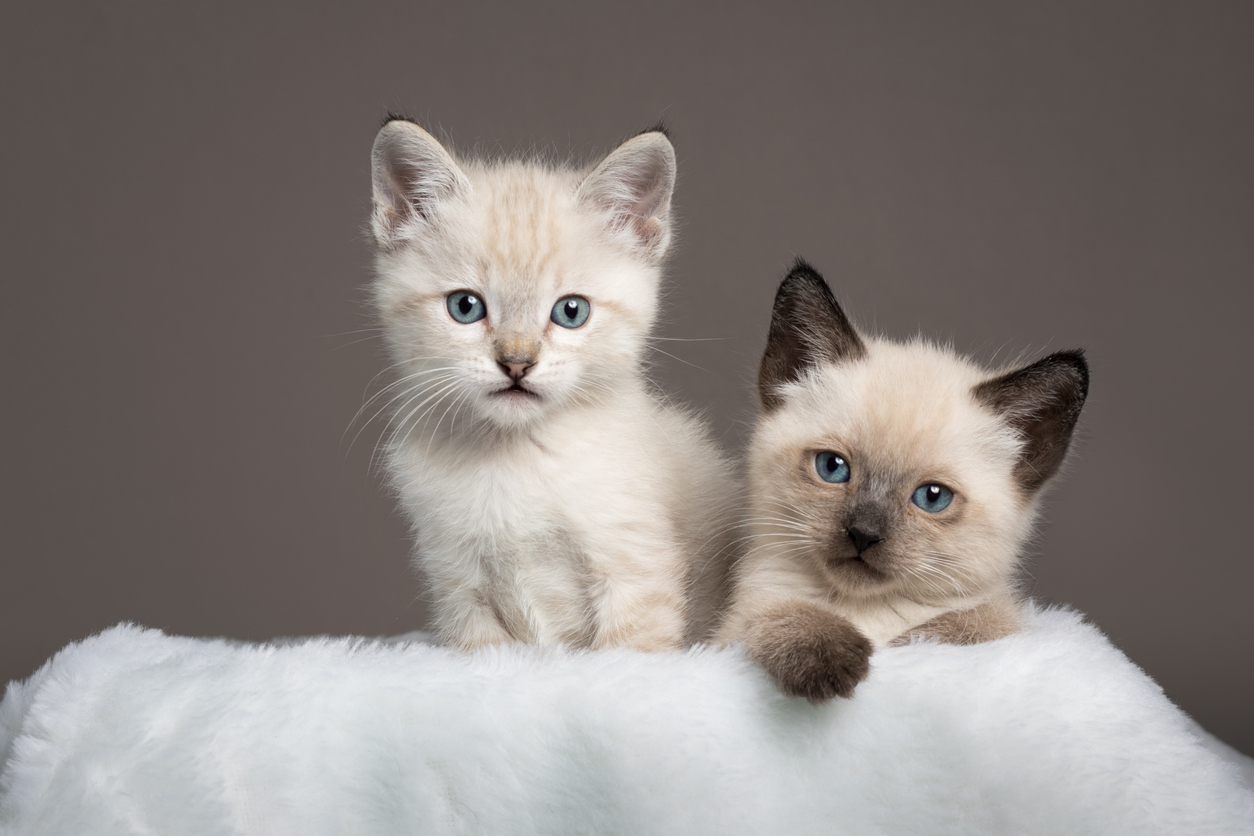5 Causes of Excessive Hunger in Cats

Pleasing our feline companions can be a challenge, particularly in the food department. But if their appetite suddenly increases, we need to find the cause and rule out serious illness. Read on to find the cause of excessive hunger in your cat, and what to do about it.
Parasites
Intestinal parasites cause excessive hunger in cats, and in other animals. Roundworms are the most common parasite, which consume the nutrients in your cat’s stomach. Naturally, this causes excessive hunger, as well as weight loss and smelly, loose stools. In severe cases, worms cause vomiting and a swollen belly.
Regular deworming is essential for cats, and other pets, even in the absence of symptoms. Treatment can get rid of these parasites before they cause serious discomfort and illness in your cat.
Thyroid
The thyroid releases a specific hormone that regulates metabolism, which in turn governs things like growth and energy. When a cat’s thyroid gland produces too much thyroid hormone, it causes hyperthyroidism, causing their metabolism to increase.
An increased metabolism results in a larger appetite, along with weight loss. A blood test will confirm hyperthyroidism, and your vet will likely put your cat on medication to normalise thyroid hormone levels, restoring normality to their metabolism.
Medication
Corticosteroids may be prescribed to your cat to treat inflammation and related conditions. Corticosteroids suppress the immune system, so they help cats with allergies. But corticosteroids can also cause excessive hunger. If you suspect this may be the case, see your vet for an update and further advice.

Diabetes
Feline diabetes mellitus is a chronic disease. The cause is an inadequate production or response to insulin, the hormone that processes sugar to be used for energy. According to Cornell University, more than half of cats, and dogs, are overweight or obese, and diabetes occurs three times as much in cats as it does in dogs.
Along with excessive hunger, other signs to lok out for include an increase in urination, thirst and weight loss. Severe symptoms of undiagnosed diabetes include vomiting, diarrhoea and fatigue. See your vet before it gets to this stage.
Intestinal Disease
Conditions like inflammatory bowel disease (IBD) affect the ability of intestines to properly absorb nutrients. The result is weight loss and an increase in appetite as your cat’s body tries to replenish the nutrients it needs.
Your vet will test, diagnose and offer treatment for your cat. You can expect urine and blood tests. Scans may also be necessary.
Excessive hunger in cats may be perfectly harmless. They may suddenly increase activity levels with the arrival of a new pet, or the rise in numbers of prey to chase. Your cat may have eaten too quickly, causing them to vomit and leaving them with an empty stomach. But if excessive hunger persists for more than a few days, take note of any other symptoms; it’s time to see your vet.

